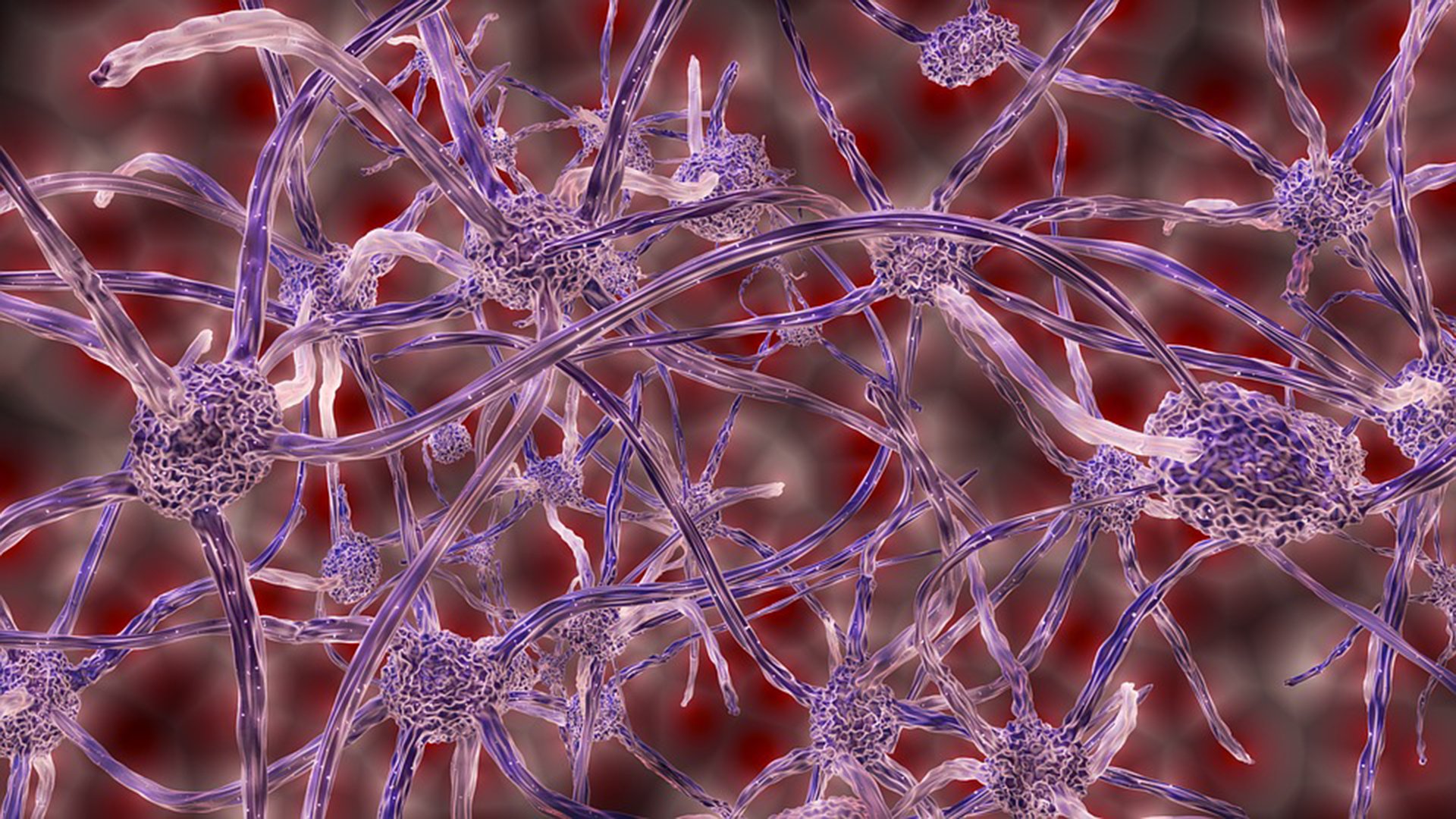Alzheimer's disease may be caused by the oral bacterium Porphyromonas gingivalis. P. gingivalis occurs naturally in a quarter of healthy people. For most of them, this bacterium is harmless. For Alzheimer's disease patients, however, traces of P. gingivalis have been found in both the mouth and the brain. Scientists suggest that the bacterium is already present in the brain before the onset of Alzheimer's disease.
Once there, the bacterium produces enzymes that are thought to damage certain proteins. One potential consequence is a build-up of amyloid β molecules, leading to the death of cerebral nerve cells. As a result, Alzheimer's disease patients increasingly struggle to complete straightforward tasks, such as talking or getting dressed.
Scientists have endeavoured to prevent the harmful effects of P. gingivalis occurring in mice. They found that the injection of the substance COR388 in mice slowed the bacterium down. Fewer amyloid β molecules were generated, which limited the damage to the nerve cells. It is not yet clear to what extent P. gingivalis plays a part in the onset of Alzheimer's disease or whether COR388 can prevent or slow down the disease in humans.
Source: ScienceAdvances

